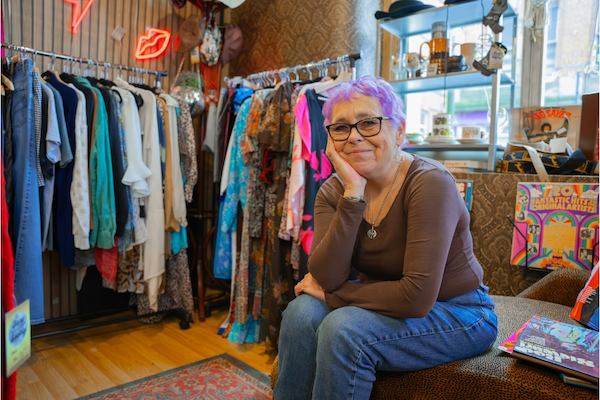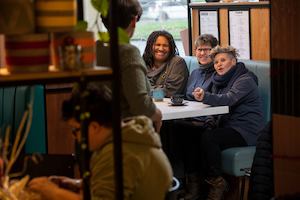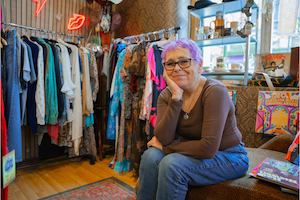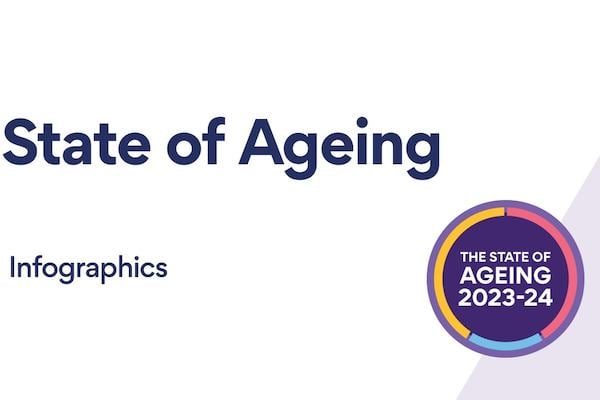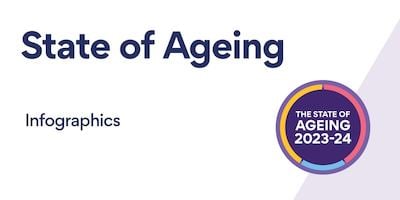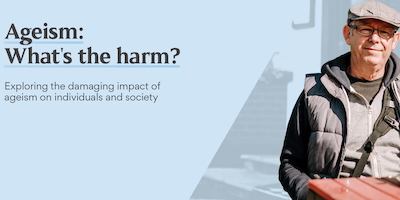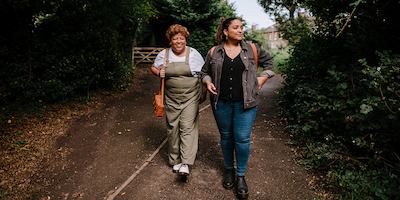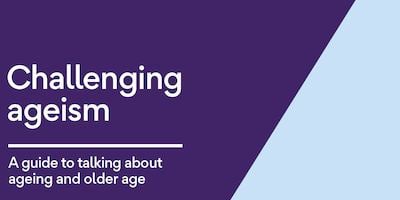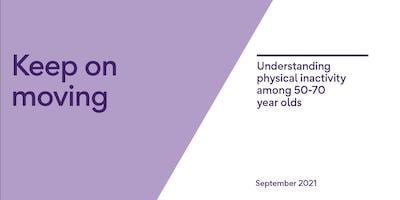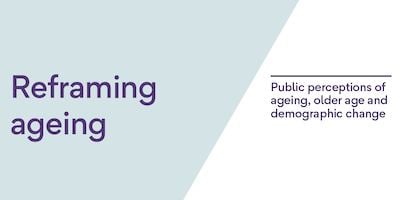Being poor, disabled or from a minority ethnic background significantly increases risk of ageism, new study finds
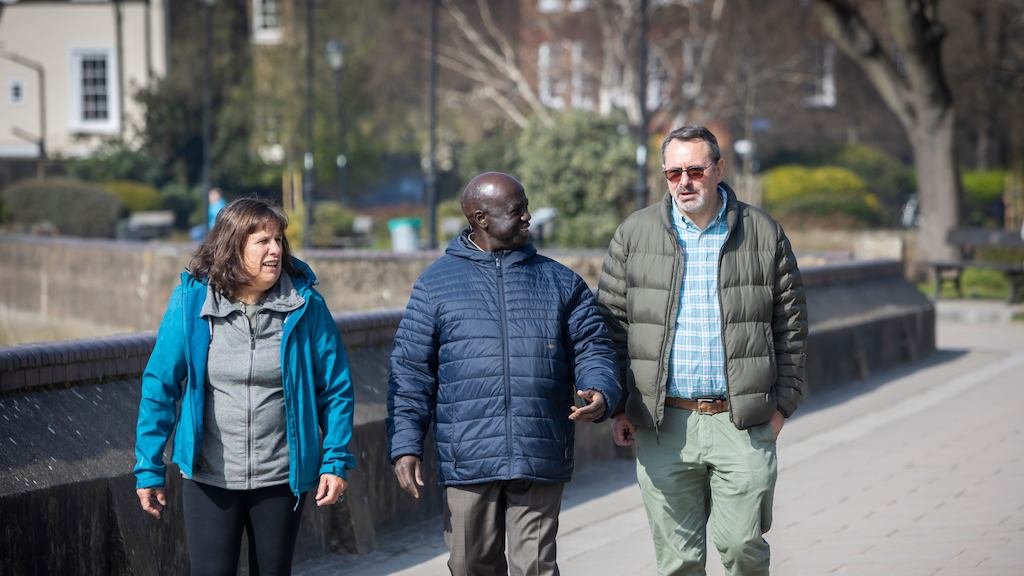
The Centre for Ageing Better’s new State of Ageing 2023/24 chapter on Society reveals that being poor or disabled can increase the chances of someone becoming the victim of ageism four-fold.
New analysis of our Age Without Limits survey data also projects that more than 9 million people experienced ageism in the past year, including 5.1 million women, 3.6 million Disabled people and 1.2 million people with BAME backgrounds.
Being poor or disabled can make a person up to four times more likely to be subjected to ageism, findings from the new Society chapter of Ageing Better’s State of Ageing report reveal.
A third (32%) of people over 50 who are struggling financially reported experiencing ageism at least sometimes in the last year compared to fewer than one in ten (8%) people in the same age group who are living comfortably.
Two in five (41%) individuals with long-term conditions that greatly affect daily activities said they experienced ageism at least sometimes in the past year compared to around one in eight people (13%) with no long-term conditions at all.
The new data analysis also reveals that being a woman or having a Black, Asian or Minority Ethnic (BAME) background also increases the likelihood of experiencing ageism.
More than a quarter (26%) of over 50s with BAME backgrounds reported experiencing ageism at least sometimes in the last year compared to fewer than one in five (18%) White people in the same age group.
Among over 50s surveyed, 47% of women compared to 43% of men said they had experienced ageism at least once in the last 12 months.
In total, around half (45%) of people aged over 50 have experienced ageism in the last year – equivalent to 9.3 million people in England.
This includes 5.1 million women, 3.6 million Disabled people and 1.2 million people with BAME backgrounds.
Dr Carole Easton OBE, Chief Executive at the Centre for Ageing Better, said:
“Our latest research starkly highlights just how embedded in society ageism is, and the potential it has to cause significant harm to older individuals and to widen inequalities.
“Discrimination based on more than one characteristic has the power to increase the harm and impact of inequality. Discrimination on the grounds of age alone has been shown to be associated with a measurable decline in health. Our research also shows how groups of people can be hit with a one-two punch of ageism alongside other forms of discrimination, adding extra barriers and layers of inequality as they age. The combination of ageism and ableism, for example, has been shown to be very damaging for Disabled people.
“Ageism is often dismissed as being harmless, but research shows that ageist ideas or beliefs can be incredibly damaging for us as individuals and for wider society. They affect how we think about and act towards other people - how we talk to older people and how we talk about them, how we treat older people in our workplaces, in our communities, and even in health settings.
“Our new State of Ageing chapter highlights the range of ways that older people make a significant contribution to society. But the report also highlights the number of ways where the potential to contribute is blocked and one of those barriers is ageism.
“This is why we launched the Age Without Limits campaign this year to change the way we all think about ageing and support a growing movement of people and organisations working to make society more age-inclusive.”
We're calling for greater action to tackle society’s growing ethnic inequalities through a new race equality strategy that would aim to reduce disparities across the life course.
The strategy would, amongst other things, look to tackle the ethnicity data gap by ensuring ethnicity data reporting becomes mandatory in all official and statutory statistics and data monitoring so that the experiences of individual communities are made visible in government data.
Ageing Better is also calling for the establishment of a Commissioner for Older People and Ageing to give a voice to marginalised groups of older people and ensure that policymaking across government considers the long-term needs of the country’s ageing population and aims to reduce inequality in later life.
New analysis of research from England’s first-ever anti-ageism campaign, Age Without Limits, has been published in the updated State of Ageing report.
It reveals that people on lower incomes are more likely to face ageism and discrimination in the workplace or in healthcare than their wealthier counterparts, while people from minority ethnic backgrounds are more likely to face ageism in education and at work than White peers.
The survey revealed that of people aged over 50 who have experienced ageism:
- Around two in five (38%) finding it difficult to get by experienced ageism in employment or work compared to fewer than one in five (14%) who are comfortably off.
- More than one in three (34%) people over 50 who are struggling financially experienced ageism in health and social care compared to one in ten (11%) of people in the same age group living comfortably.
- People with BAME backgrounds are four times more likely to experience ageism in education or training (17%) than White people (4%) and twice as likely to experience ageism (44% compared to 23%) in employment or work.
Mikey Erhardt, Campaigner at Disability Rights UK, said:
“We are not surprised that new research continues to show that disablism and ageism are on the rise when rhetoric from the government and its media outriders demonises Disabled and older people and the support we need at every turn.
"We all want the right support when we need it. Hostile rhetoric is not just nasty words; it leads to concrete harm for all of us, from dangerous policy decisions to ignorance of our desires for change. We hope this research can be a rallying call that more must be done so that everyone can participate in an equitable society built on mutual respect, dignity and safety."
The Age Without Limits campaign is calling on everyone to take time to consider how we think and speak about getting older.
Resources, including key facts and stats, how-to guides as well as a quiz exploring ageist beliefs, have been made available at the campaign website to help people learn more about ageism and the harm it causes.
Advice is also offered on how to challenge ageism – whether in the media or online, in workplaces, communities or in other settings.
